The Art of Thinking Clearly
|
|

The Art of Thinking Clearly translates complicated results from cognitive bias experiments, interprets and synthesizes them into short, easy to understand summaries. Humans experience diverse reasoning patterns out of which many are limitations to logical thinking. Most cognitive errors made by humans are standard and can be identified when you know what you have been and are dealing with.
Knowing these will help you to minimize them, and then you can open yourself up to logical alternatives. The author opens up the reader’s mind to human psychology, reasoning and how to avoid cognitive errors for better decision making.
Among the logical errors, Dobelli explores survivorship bias or systematic overestimation of the chances for success and social proof or feeling that an action or decision is right because a lot of people are doing it. You come across survivorship bias when dealing with money and risk. It becomes especially pernicious when you become a member of the winning team. The author suggests an amazing solution to help clear your mind against survivorship bias, which is a frequent visitation of graves of once-promising projects, career and investment.
Clustering Illusion: When it comes to recognizing a pattern, we are oversensitive. However, it is best to regain your skepticism. If you or someone, close to you, thinks you have found a pattern, first take in consideration that may be pure chance. If it seems too reasonable to be true, see a mathematician and have the data tested statistically.
Social Proof: It dictates that individuals tend to think they are behaving correctly as long as they act the same as other people. In other words, the more people follow a particular idea, the better we think the idea is, and therefore support it.
Outcome Bias: Attributing positive outcomes to our capabilities and blaming external issues on external circumstances. This attribute was tested by having two groups of subjects take a personality test then arbitrarily assigning good or bad scores. The students with positive outcome believed the test results were fair and reflected their abilities. The students with the not so good score, on the other hand, found the test was garbage and didn’t reflect their personality. An excellent way to overcome your judgment is to listen to honest feedback and to learn from it without taking it personally.
An illusion of attention: We often think that we notice everything around us but this couldn’t be farther from reality. As a Harvard study found, it is easier to lose attention than what we think. The experiment had subjects watch a video of students passing balls back and forth while counting how many times the player in white shirts passed the ball. Later they were asked if there was something unusual that caught their attention. Half of the subjects did not notice anything unusual, unaware of the fact that in the middle of the video, someone dressed as a gorilla walked across the room pounding his chest. We tend to remember things which happen at the beginning and end of a stream of information forgetting what comes in the middle.
Lastly, amongst others is alternative blindness. Whenever people think about an offer, they become blind to alternatives. However, to be able to make the right decision, you have to go out of your mental limit.
To overcome these cognitive errors in reasoning, we have to be aware of them and take a conscious effort to defeat them.
THE BIG THREE – KEY POINTS
Key point #1: Cognitive biases cause simple errors in most of our day to day thinking.
Keypoint #2: Facts do not cease to exist because they are ignored. Therefore, make decisions based on facts, only lazy minds are comfortable with the illusion that perception is reality, perception is perception, reality is reality.
Keypoint #3: We are drunk on our own ideas. To sober up, take a step back now and then and examine their quality in hindsight.
One Last Thing
“If you ever find yourself in a tight, unanimous group, you must speak your mind, even if your team does not like it.”
― Rolf Dobelli, The Art of Thinking Clearly: Better Thinking, Better Decisions

Leave a Reply
Want to join the discussion?Feel free to contribute!